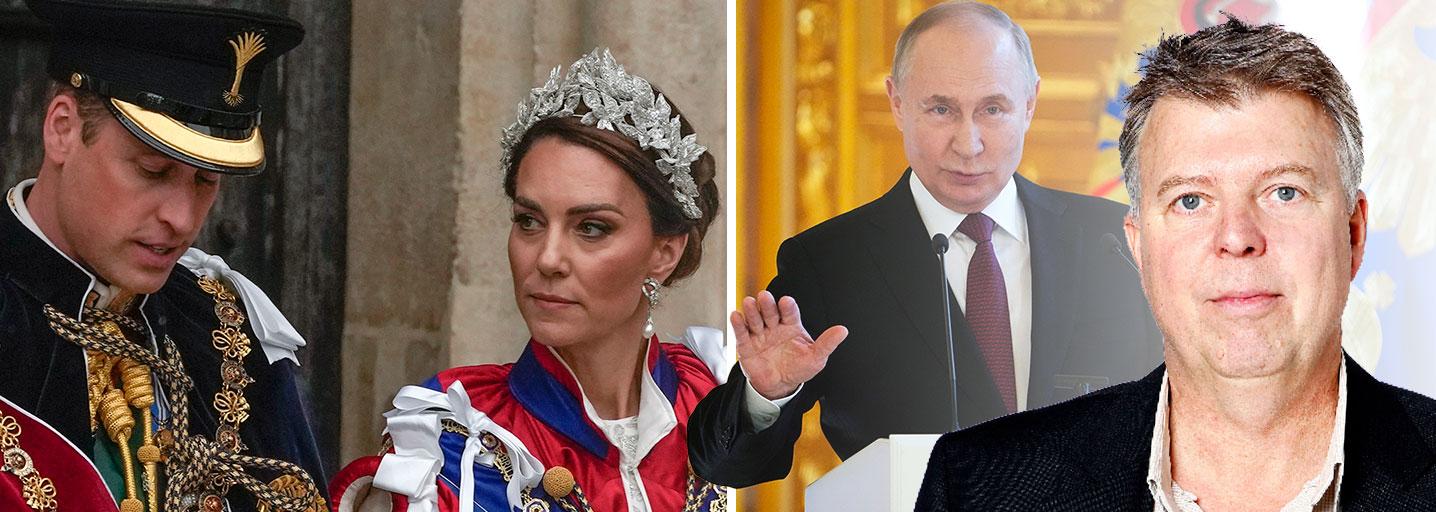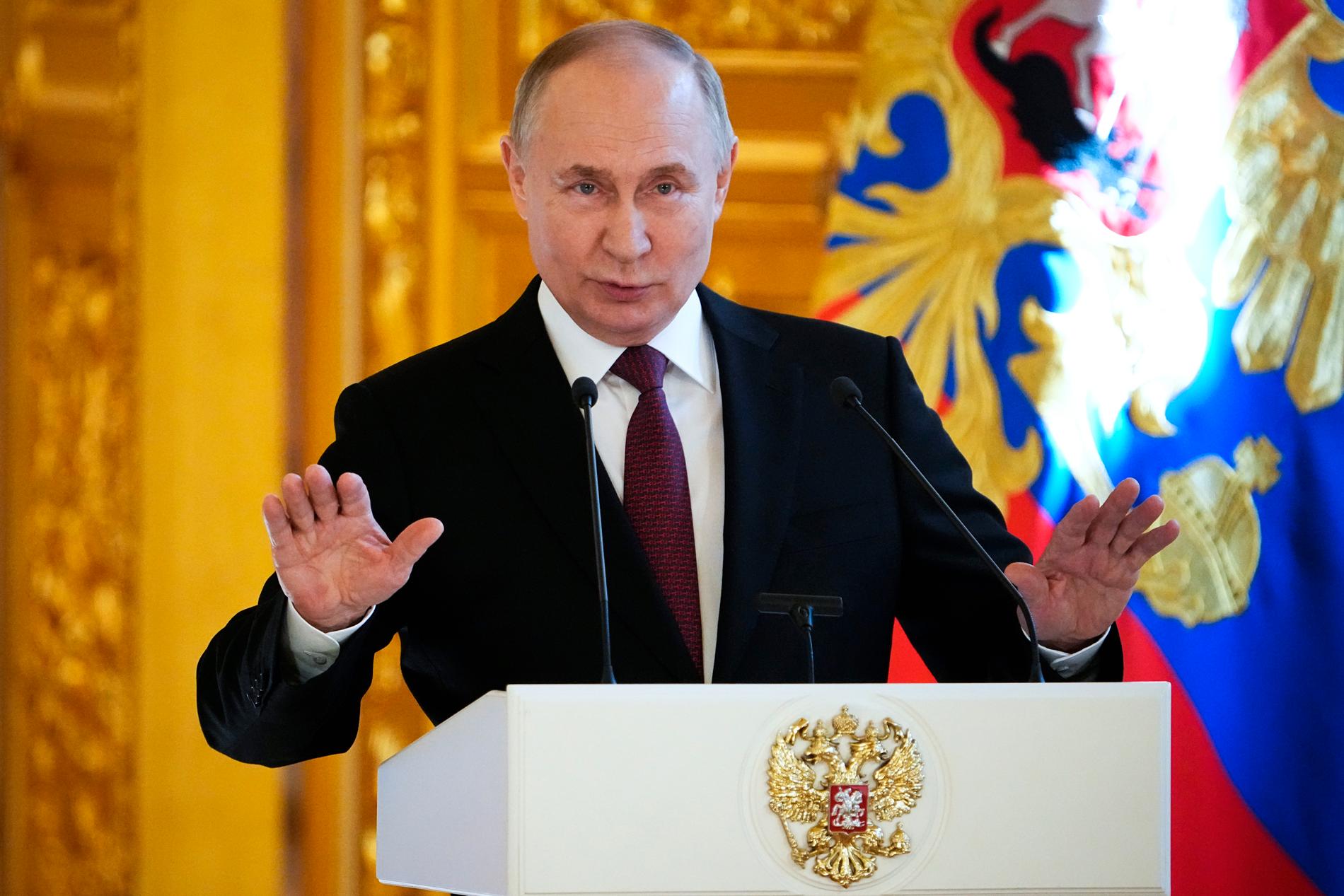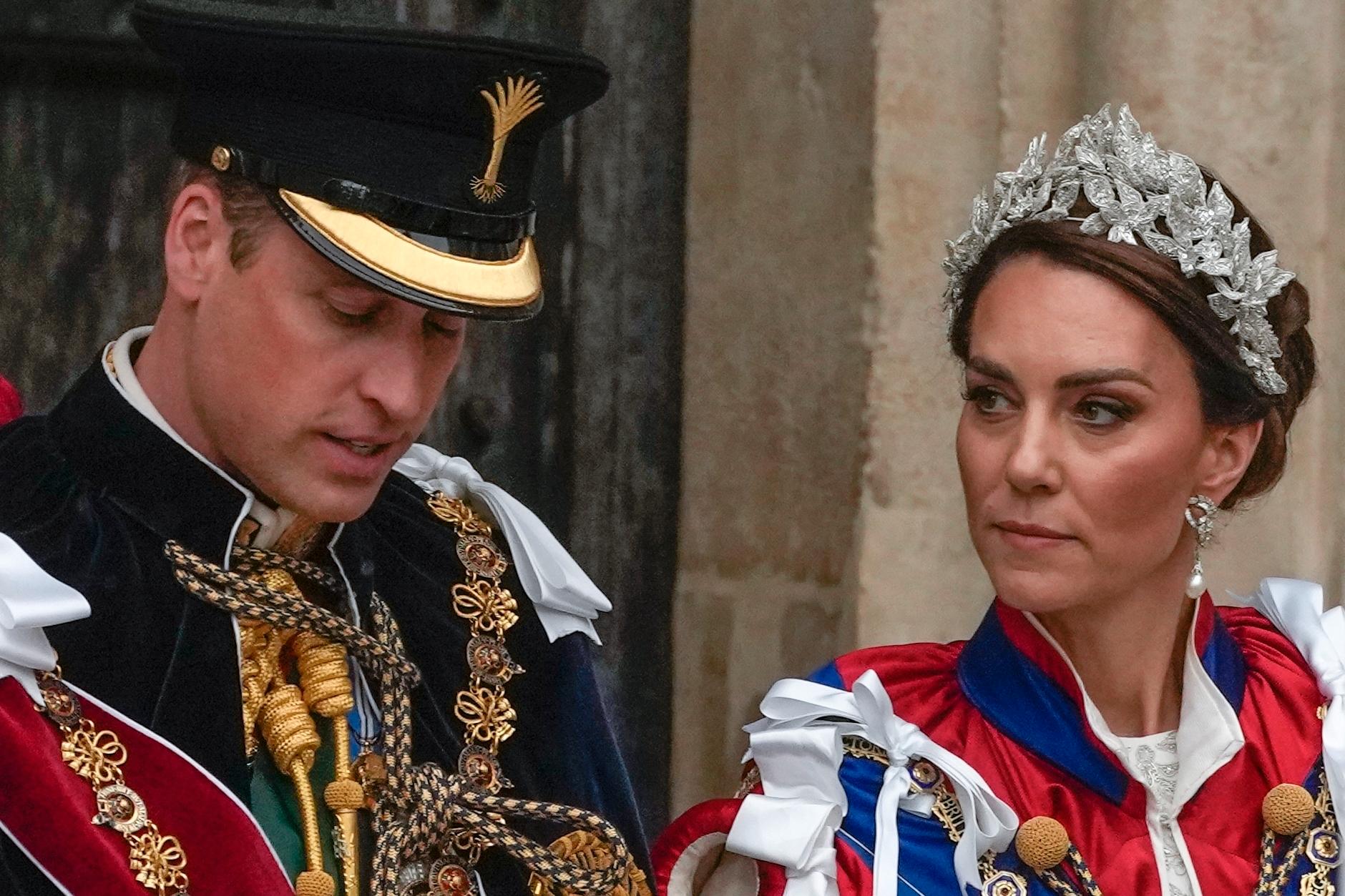
Kate Middleton
Are Russian trolls fueling Kate conspiracy theories?
Wolfgang Hansson
This is a commenting text. Analysis and positions are the writer's.
Published 20.15

Vladimir Putin's Russian troll factory may have a hand in the conspiracy theories about Princess Kate. Photo: Alexander Zemlianichenko/AP
Princess Kate Middleton or someone in the British court tampered with a family photo.
Then it took over the house for good.
The question is whether Russian trolls are involved in fueling the worst conspiracy theories.
At first I just laughed when the conspiracy theories surrounding Kate grew. How can anyone be so stupid as to post such nonsense?
Then I thought one more lap.
The story of the first picture of the British princess after a "mysterious" operation lends itself perfectly to Russian troll factories whose only job is to undermine trust in institutions in the Western world, so split between different groups and contribute to increased polarization in Western societies.
At first they received good traction from British and other Western media who questioned why the image of Kate Middleton and her family had apparently been manipulated. Some kind of fake game is suspected here, even though the court has informed that the princess has undergone a stomach operation and that she will not return to duty until after Easter.
It is a perfect location for the Russian trolls to hang out and through thousands of fake accounts contribute to spreading various conspiracy theories. Like the princess is actually in a coma because the surgery failed, has actually had a Brazilian butt lift, is already dead, or something else horrible.
You connect to a sense of wonder and suspicion that already exists among the public and the media and spins on the theme.
I have no evidence that it happened in this particular case, but given previous Russian disinformation campaigns, more people should ask themselves the question.
Not least since several Russian state media spread rumors online that the photos of Kate and Prince William walking on a sidewalk in Windsor after a shopping trip are fake. Elena Sotnikova, former editor-in-chief of the Russian edition of the magazine Elle, belongs, according to British The Sun, to those who claim that it is not Kate and William in the pictures but doppelgangers. This despite the fact that the British court confirmed that the photos of the couple are genuine.
On Monday, several Russian media went out and declared the death of Prince Charles as another dispute on the Kate Middleton story. This after some unknown source sent out a press release about the "death" that appeared to come from Buckingham Palace.
Coincidentally, the "news" is released just a few weeks after King Charles stated his strong support for Ukraine. It spread so widely that the British Embassy in Moscow felt compelled to issue a denial.
Russia is probably the world champion of disinformation. Possibly in competition with China. Two superpowers working together to undermine the liberal world order to pave the way for one more favorable to their authoritarian rule.
Warfare on the Internet is significantly cheaper than physical weapons and, moreover, you can hide in the mists of anonymity. You don't have to directly challenge someone on the battlefield. The risks are small but the profits potentially very high.
On Monday, several Russian media went out and declared the death of Prince Charles as another dispute on the Kate Middleton story. This after some unknown source sent out a press release about the "death" that appeared to come from Buckingham Palace.
Coincidentally, the "news" is released just a few weeks after King Charles stated his strong support for Ukraine. It spread so widely that the British Embassy in Moscow felt compelled to issue a denial.
Russia is probably the world champion of disinformation. Possibly in competition with China. Two superpowers working together to undermine the liberal world order to pave the way for one more favorable to their authoritarian rule.
Warfare on the Internet is significantly cheaper than physical weapons and, moreover, you can hide in the mists of anonymity. You don't have to directly challenge someone on the battlefield. The risks are small but the profits potentially very high.

Prince William and Princess Kate. Photo: Alessandra Tarantino/AP
It takes expertis, time and money to trace the real senders of various conspiracy theories, disinformation, sabotage and smear campaigns. But at this point, we know that Russia has an army of trolls whose only business is spreading false information and hacking into Western sites to steal information, spread confusion, and disrupt essential societal functions.
Recently, German experts revealed an extensive Russian campaign targeting the German government in which tens of thousands of fake accounts on the platform X, formerly Twitter, were used. The message of the campaign was that Chancellor Scholz's government ignores the welfare of German citizens and instead pours billions into Ukraine. More than a million posts in German were posted in one month from around 50,000 fake accounts.
Now, no one laughs or shrugs at Russia's cyber warfare. Most people recognize that it is a serious threat to open societies and democracies where disinformation can spread unchecked.
In contrast to Russia and China where the authorities have almost total control over what is published in print media, television, radio and on social media.
Recently, German experts revealed an extensive Russian campaign targeting the German government in which tens of thousands of fake accounts on the platform X, formerly Twitter, were used. The message of the campaign was that Chancellor Scholz's government ignores the welfare of German citizens and instead pours billions into Ukraine. More than a million posts in German were posted in one month from around 50,000 fake accounts.
Now, no one laughs or shrugs at Russia's cyber warfare. Most people recognize that it is a serious threat to open societies and democracies where disinformation can spread unchecked.
In contrast to Russia and China where the authorities have almost total control over what is published in print media, television, radio and on social media.
Just over a month ago, France, Germany and Poland accused the Russian regime of having assembled a network of sites on the Internet to spread pro-Russian propaganda aimed at undermining democratically elected governments in Europe.
It is happening with less than three months to go until the EU elections, where extreme parties on both the right and the left are already predicted to achieve great success. Putin and his followers are happy to help them further along the way.
The 2016 US presidential election was one of the first that Putin tried to influence via fake social media accounts. This fall, the United States will go to presidential elections again. An election where the outcome could determine Russia's chances of success in the war in Ukraine.
Probably the Russian troll factories are already going to high pressure.
Inga kommentarer:
Skicka en kommentar